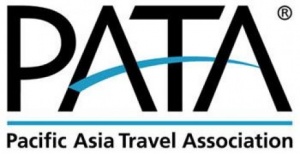PATA looks for early reform of UK ‘tax on travel’

PATA is seeking early confirmation of reform to the widely-criticised UK Air Passenger Duty from the new British coalition government.
The Association is looking for action from the Philip Hammond, the new Secretary of State for Transport. Philip Hammond, appointed by Prime Minister David Cameron, is Conservative MP for the safe seat of Runnymede and Weybridge - a constituency located to the south west of London close to London Heathrow airport.
With both coalition parties (Conservative and Liberal Democrats) promising reform in their respective election manifestos, PATA HQ in Bangkok is now liaising with members of the London-based PATA UK Chapter and other industry stakeholders on how best to ensure early delivery of these election promises.
The Conservative Party made a clear pledge to ‘reform Air Passenger Duty to encourage a switch to fuller and cleaner planes’. The Liberal Democrats stated that they will ‘replace the per-passenger APD with a per-plane duty (PPD)’. The previous Labour government scheduled a further increase in UK Air Passenger Duty in November 2010.
PATA has been campaigning against the UKAPD since November 2008. Recent actions include the lobbying of British Ambassadors and High Commissioners by PATA Chapters worldwide.
ADVERTISEMENT
“We understand that the new UK government is facing some real economic challenges. But, so too, are our members across the Asia Pacific region. When members of the Pacific Tourism Leaders’ Forum met recently in Sydney we called the tax ‘ill conceived and draconian’. There was collective agreement that such taxes act as barriers to trade and development within the region, given its high dependence on the tourist dollar,” says PATA CEO Greg Duffell.
“We’re looking quite simply at some early and very positive steps from the new UK Transport Secretary. It’s important that he delivers upon the promises made in the election manifestos of both coalition parties.”

